
-
Find the right food for your petTake this quiz to see which food may be the best for your furry friend.Find the right food for your petTake this quiz to see which food may be the best for your furry friend.Featured products
 Perfect Digestion Small & Mini Adult Dog Food
Perfect Digestion Small & Mini Adult Dog FoodHill's Science Plan Perfect Digestion Small & Mini Adult Dog Food with Turkey is a complete premium pet food for small breed adult dogs aged 1–6 years. This deliciously smooth mousse is precisely balanced to deliver the appropriate amount of energy and to support digestive health in adult, small breed dogs.
Shop Now Perfect Weight Small & Mini Adult Dog Food
Perfect Weight Small & Mini Adult Dog FoodHill's Science Plan Adult Small & Mini Dog Food with Turkey is a complete premium pet food for adult small dogs from 1 year old that are prone to weight gain or slightly overweight. This deliciously smooth mousse is formulated to deliver the appropriate amount of energy to support weight maintenance in adult dogs.
Shop Now Hypoallergenic Small & Mini Adult Dog Food
Hypoallergenic Small & Mini Adult Dog FoodHILL'S SCIENCE PLAN Hypoallergenic Small&Mini Adult dog food with Salmon is complete pet food for adult small dogs 1–6 years old. It's formulated for dogs with delicate skin and stomach, with limited high quality novel protein sources & no grain.
Shop NowFeatured products Urinary Health Adult Cat Food with Chicken
Urinary Health Adult Cat Food with ChickenHill's Science Plan Urinary Health Adult Cat Food with Chicken supports the health of the whole urinary system. Suitable for sterilised cats.
Shop Now Sterilised Mature Adult Cat Food
Sterilised Mature Adult Cat FoodHill's Science Plan Sterilised Cat Mature Adult Cat Food with Chicken is specially formulated with ActivBiome+ Multi-Benefit Technology. It is a precisely balanced nutrition tailored to meet the needs of mature adult sterilised cats, ages 7+, and to promote graceful ageing.
Shop Now Oral Care Adult Cat Food
Oral Care Adult Cat FoodHill's Science Plan Oral Care Adult Cat Food with Chicken contains clinically proven kibble technology to reduce plaque & tartar build up.
Shop Now -
Dog
- Dog Tips & Articles
-
Health Category
- Weight
- Food & Environmental Sensitivities
- Urinary
- Digestive
- Joint
- Kidney
-
Life Stage
- Puppy Nutrition
- Adult Nutrition
- Senior Nutrition
Cat- Cat Tips & Articles
-
Health Category
- Weight
- Skin & Food Sensitivities
- Urinary
- Digestive
- Kidney
-
Life Stage
- Kitten Nutrition
- Adult Nutrition
Featured articles Develop your gut instinct | Hill's Pet
Develop your gut instinct | Hill's PetDigestive disorders can affect any part of the digestive system, from the stomach, small intestine and through to the large intestine.
Read More Tips For Mixing Wet And Dry Pet Food
Tips For Mixing Wet And Dry Pet FoodDiscover tips for mixing wet and dry pet food to ensure balanced nutrition and variety for your pet. For comprehensive feeding advice, visit Hill's Pet UK.
Read More Virtual Vet Visits: What You Need to Know
Virtual Vet Visits: What You Need to KnowLearn the ins and outs of a televet appointment before you talk to a vet online.
Read More -


A common complaint vets hear from cat parents is that their cat has a sensitive stomach and vomits — maybe once a week, maybe twice a week, but always on the carpet (or somewhere else that's hard to wash). Even though digestive upset in some cats can happen regularly, it is never normal, even if there is plant material or a hairball in the puddle on the floor.
There are a number of reasons why your cat may have a sensitive stomach. It is important to always have your veterinarian assess your cat to help identify the cause and develop an individualised plan to manage the problem. Today, we are just going to talk about the two possible reasons for cats to have a sensitive stomach -- food intolerance and food allergies. While these two reasons sound similar, they are not the same thing.
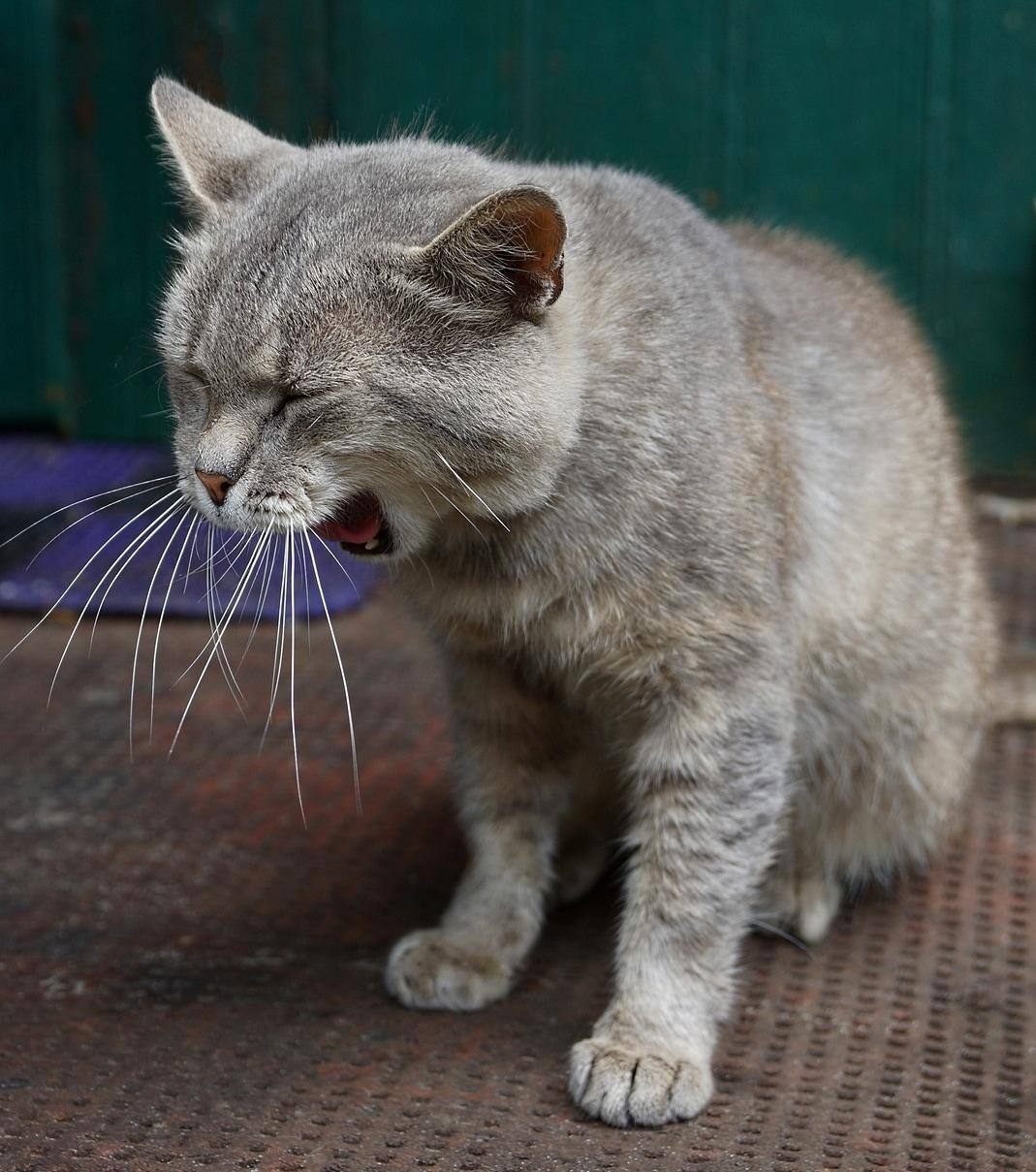
Food Intolerance
Food intolerance is a term that refers to an abnormal response to a food that is not caused by the immune system and can occur in cats of all ages. Causes of digestive upset due to food intolerance can include food poisoning, histamine in spoiled fish, lactose intolerance, and getting into the garbage and eating things the cat would not normally receive. Discussing the possible causes with your veterinarian is a good first step.
Some cats with food intolerance may need a change in food. One option your veterinarian may recommend for your kitty is to switch to a more easily digestible food.
Easily Digestible Foods
Digestibility refers to how easily a cat or dog can process and get essential nutrients from what they eat. The factors that most influence digestibility are the ingredients, ingredient quality and processing methods used in making a food. Foods for pets with sensitive stomachs are usually made with highly digestible ingredients but will also include a small amount of fibre to help support the pet’s gut microbiome. They are also complete and balanced to make sure that your cat receives all of the essential nutrients such as vitamins and minerals it needs to stay healthy.
Food Allergies
A food allergy is the result of an abnormal immune reaction to an ingested food. Luckily, food allergies are uncommon in cats. They can develop at any age but the pet must be repeatedly exposed to the offending allergen (for example, by eating it every day) to develop signs of a problem. Those signs can include vomiting, diarrhoea, flatulence, loss of appetite, itchy skin, hair loss or reddened skin. If your pet shows any of these signs, it’s time to visit your veterinarian.
Believe it or not, the Pet Food Manufacturers’ Association (PFMA) states that fish, beef and dairy are the most common causes of food allergies in cats. They point out that true food allergies are actually quite rare, and are often misunderstood in pets because they don’t always show up the same way as allergies would in humans. For that reason, if you suspect your cat has a food allergy, it’s best to have this investigated and confirmed by your vet.


Tasty Tips
What to Do About Food Allergies
If you or your vet suspect this condition, then a dietetic cat food may be part of the plan that your veterinarian recommends.
If you are thinking about heading down to the pet store and picking up some new food yourself instead of visiting the vet, wait a minute. This is a common pet parent mistake when dealing with a cat's sensitive stomach. Switching foods around will only confound the issue and make it harder for your vet to figure out the right way to treat your kitty's dietary woes.
The only way to accurately diagnose a food allergy is with a strict diet trial. Food trials should be conducted with dietetic foods specifically designed for this purpose. We will discuss what makes these foods so special in just a minute. Limited-ingredient wellness foods found at the pet store should not be used. Proper food trials will take about 10–12 weeks and your cat must eat the new food and nothing else — no treats, no scrambled eggs and no kitty toothpaste, unless it is cleared by your vet. If your cat has a true food allergy, then any sensitive stomach issues should clear up in 2 to 4 weeks. Symptoms like itchy skin will take longer to resolve. If you have been religious about your food trial but your cat is still having problems, then the issue is unlikely to be a food allergy and your veterinarian may recommend additional testing to assess other causes.
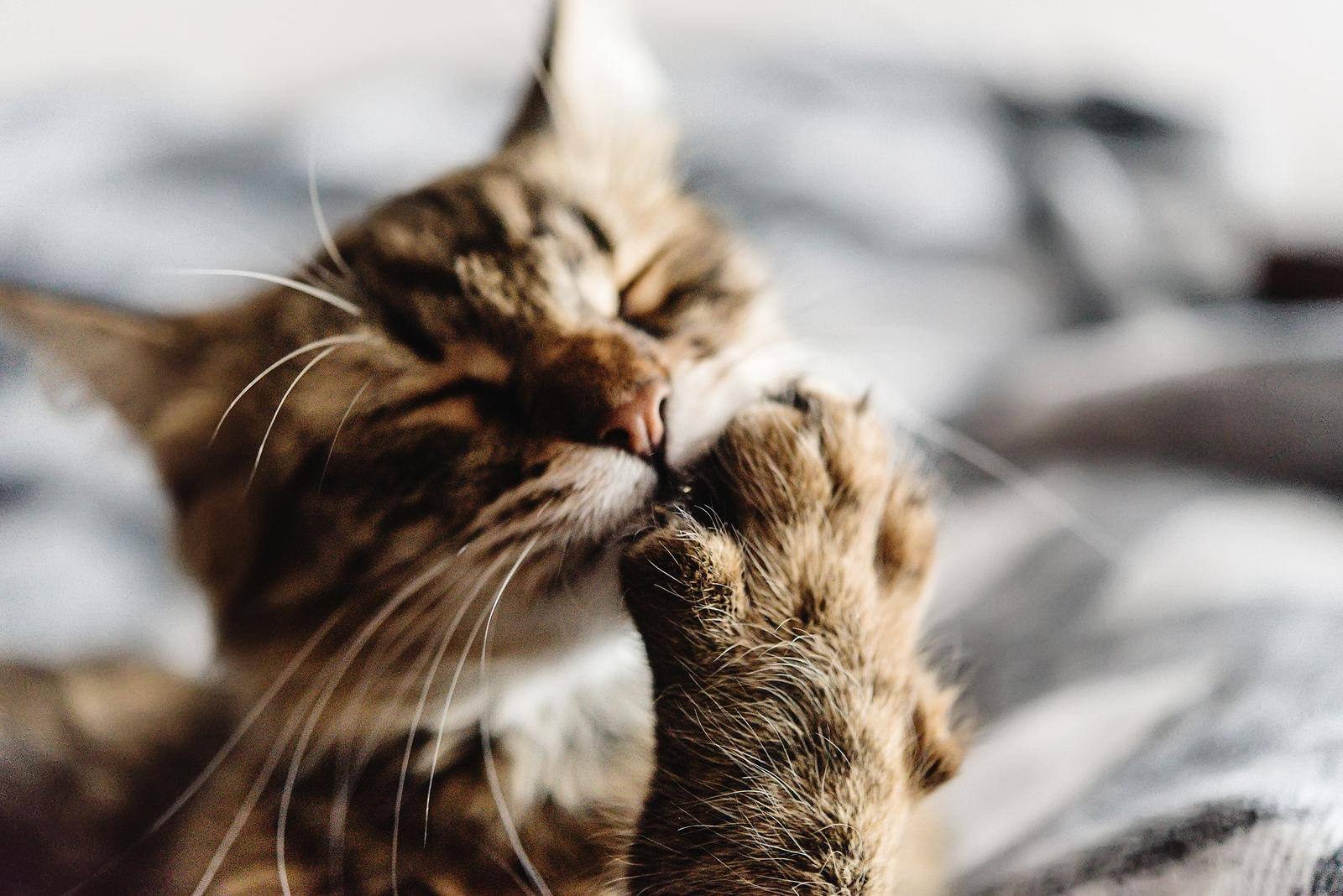
“Hypoallergenic,” Novel and Hydrolyzed Protein Foods: What Are They?
While there are no official definitions for hypoallergenic pet foods, you may see products labelled as "hypoallergenic" and people may use this term to describe a variety of different food types and ingredient combinations. Because “hypoallergenic” is not a legally defined term for pet food, products may not be suitable or effective for cats with food allergies.
There are two types of dietetic foods your veterinarian may recommend if a food allergy is suspected. The first type uses hydrolysed proteins, which means the protein has been broken down into such small pieces that your cat's immune system does not recognise the allergen. The second type is a food with a novel protein like duck or venison. These protein sources are likely new to your cat and therefore the immune system does not recognise them as a problem.


Dr. Sarah Wooten graduated from UC Davis School of Veterinary Medicine in 2002. A member of the American Society of Veterinary Journalists, Dr. Wooten divides her professional time between small animal practice in Greeley, Colorado, public speaking on associate issues, leadership, and client communication, and writing. She enjoys camping with her family, skiing, SCUBA, and participating in triathlons.
Related products

Hill's Science Plan Oral Care Adult Cat Food with Chicken contains clinically proven kibble technology to reduce plaque & tartar build up.
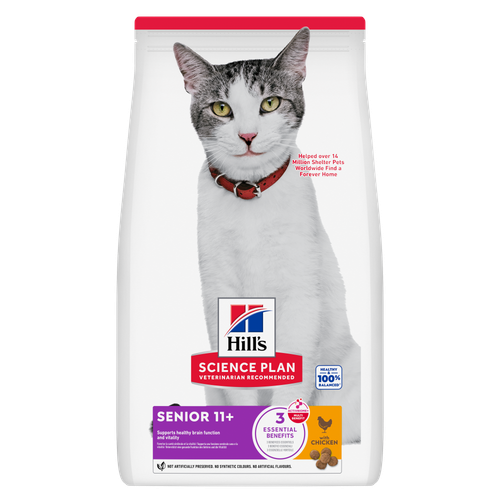
Hill's Science Plan Senior Cat Food with Chicken is a complete pet food, specially formulated with ActivBiome+ Multi-Benefit Technology.
This food supports healthy aging during the golden years. Contains a special ingredient blend to help keep older cats agile, more alert & interactive.

Hill's Science Plan Sterilised Cat Mature Adult Cat Food with Chicken is specially formulated with ActivBiome+ Multi-Benefit Technology. It is a precisely balanced nutrition tailored to meet the needs of mature adult sterilised cats, ages 7+, and to promote graceful ageing.

Hill's Science Plan Urinary Health Adult Cat Food with Chicken supports the health of the whole urinary system. Suitable for sterilised cats.
Related articles
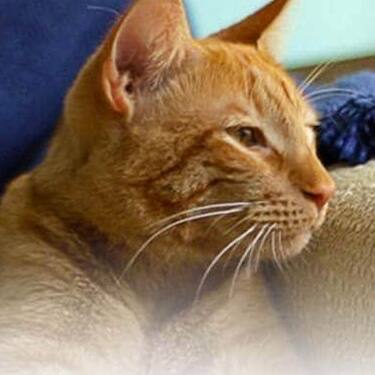
Find the right Hill
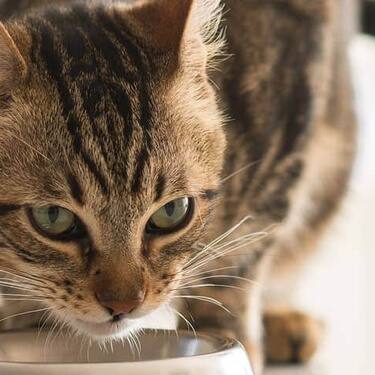
Discover what you can do to spot and support a sensitive cat stomach. See what routines and food you can implement to help your cat be happy and healthy.
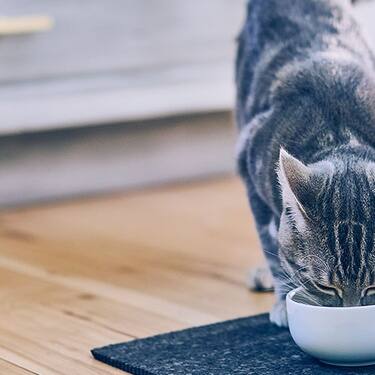
Good nutrition is about the right balance of nutrients. Learn more about health issues when feeding a cat food that has an improper nutritional balance from your friends at Hills Pet Nutrition.
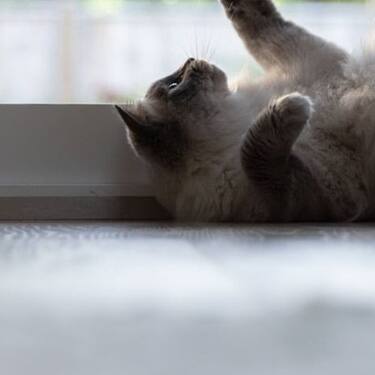
Feeding time can be a wonderful bonding opportunity for you and your cat. Find out how to make the most of it and create a healthy habit with HIll's Pet UK.

Put your cat on a diet without them knowing
Our low calorie formula helps you control your cat's weight. It's packed with high-quality protein for building lean muscles, and made with purposeful ingredients for a flavourful, nutritious meal. Clinically proven antioxidants, Vitamin C+E, help promote a healthy immune system.
Put your cat on a diet without them knowing
Our low calorie formula helps you control your cat's weight. It's packed with high-quality protein for building lean muscles, and made with purposeful ingredients for a flavourful, nutritious meal. Clinically proven antioxidants, Vitamin C+E, help promote a healthy immune system.

